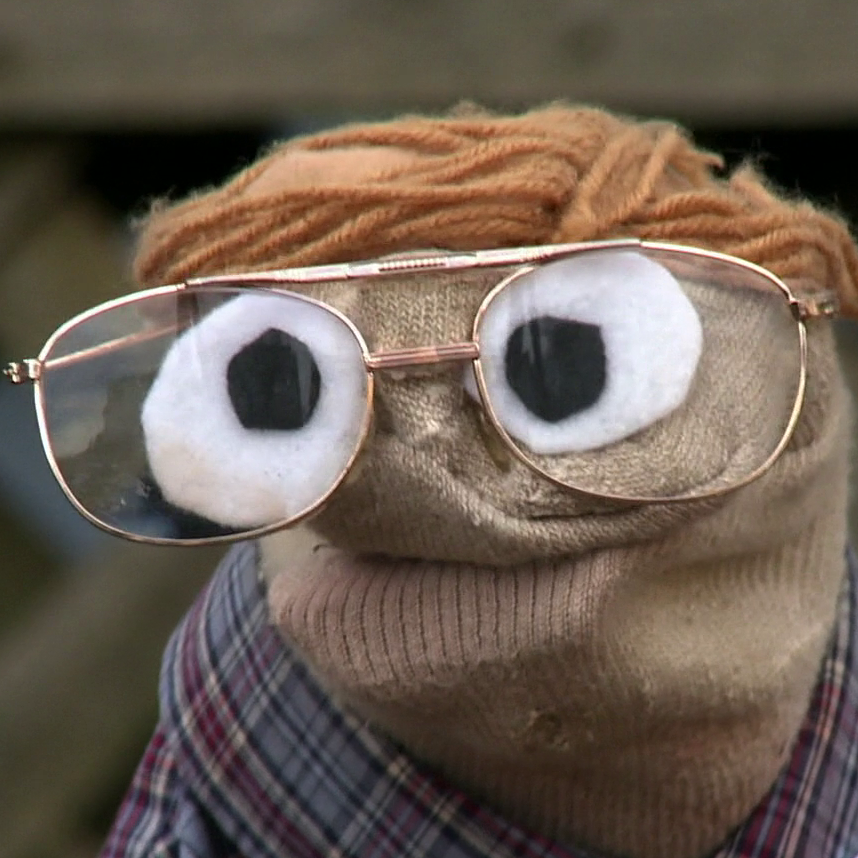“Most of the world’s video games from close to 50 years of history are effectively, legally dead. A Video Games History Foundation study found you can’t buy nearly 90% of games from before 2010. Preservationists have been looking for ways to allow people to legally access gaming history, but the U.S. Copyright Office dealt them a heavy blow Friday. Feds declared that you or any researcher has no right to access old games under the Digital Millennium Copyright Act, or DMCA.”
Read a comment a while ago that if libraries weren’t a thing today and someone would propose them, the FBI would be on their ass and stalk after them for even suggesting such radical views. Copyright law is utterly broken and a disservice to society in it’s current form and execution. Politicians need to get their fat fingers out of the stock market by law.
archive.org is the modern proposal of a library, and yeah, look what’s happened to them
I really feel like the source code needs to be released after 25 years. We need to be able to protect older games.
I’ve been saying that we need to have a law on the books to require any online components of a game be required to have the source to those features be released upon closure of the online service. I would be fine with them then being except from any security liability for anyone who gets hacked by use of that software and even retaining ownership of the IP, so no one could sell access to the service, but being able to stand up fan-run servers for old Xbox-live games or dead MMOs more easily would be really great. I’m locked out of so many PlayStation trophies simply because online servers have been down for ages now.
There’s often no in any way complete source code after 25 years.
Media degrade, get forgotten hell knows where, get occasionally destroyed.
Yeah, I know it’s a pipe dream, but really, there should be something that opens source code up. Too much company history gets lost or forgotten because people forget. Plus think about how much value you can gain as a student seeing how people accomplished things with minimal resources.
All things that can be prevented in the future if you start today.
That’s cool. Won’t really stop any of the shit that’s been happening though.
Good luck corpos, for every pirate you take away ten more will take their place.

Guess I don’t understand, are they saying places Like Vintage Stock that sells old games illegal? Or are they talking about digital backups of these games. Regardless fuck them and the copyright office. This makes me want to pirate more not less.
I answered your question on another thread of the same topic, but I’ll answer it here too for anyone else who has the same question: The law is just about digital backups. Vintage stores are still legal, and if anything this would boost sales at a vintage stores. If the game you’d like to play is unavailable at a vintage store or on eBay (or wherever else) then it will be entirely inaccessible for you to play legally.
So if I’m understanding what you are saying correctly this is pro “book” burning. Only in this case it is games. If a group or entity wants to make a piece of history more scarce or wipe it from the planet because they disagree with it, buying up or destroying as many physical copies that exist would work because people legally can’t back them up or print more copies essentially?
The IP owner can print more, but if the owner is gone or legally unclear, then yes. Although I don’t think this was the real intention, because greed looks like a simpler reason and fits
luckily there’s more details to read when you click the link.
What???
This isn’t even targeting pirates it’s targeting legitimate users. If anything, this will create more pirates.
They’re trashing our rights!
Hack the planet!
Trashing!
Cereal towering over everyone trying to stay inconspicuous during that scene always cracks me up.
And the fashion, oh wow, such an aesthetic.
The DMCA is a curse.
I’d say it’s more intolerably long copyright terms than the DMCA specifically.
The DMCA is just the icing on top of the 95-120y “work for hire” copyright duration shit cake.
And not a fun place to stay at at all
It’s fun to violate the D-M-C-A 🎵
I could lend out my old computer with old games installed to somebody else to use, right?
What if instead i lend my hard drive, is it still the same thing? Or what if I lend out my remote access screen sharing password to my old PC. Still the same?
Maybe the legal workaround is to game the system here a bit - forget downloading executables which feels a lot like pirating and just lend access to a system that is legally running the original license.
Not a lawyer but I believe in the US this would be legal as you are granting the use of the original license and not duplicating any content for simultaneous use by others.
What I would like to see is a gentlemans agreement of sorts where companies agree not to come after people for playing pirate, emulated or archival copies of games that are decades old and not for sale in any format anymore. I guess this is somewhat encompassed in the framework of “Abandonware”.
“Fair Use” is a thing. Someone needs to go back to law school.
Notwithstanding the provisions of sections 17 U.S.C. § 106 and 17 U.S.C. § 106A, the fair use of a copyrighted work, including such use by reproduction in copies or phonorecords or by any other means specified by that section, for purposes such as criticism, comment, news reporting, teaching (including multiple copies for classroom use), scholarship, or research, is not an infringement of copyright. In determining whether the use made of a work in any particular case is a fair use the factors to be considered shall include:
- the purpose and character of the use, including whether such use is of a commercial nature or is for nonprofit educational purposes;
- the nature of the copyrighted work;
- the amount and substantiality of the portion used in relation to the copyrighted work as a whole; and
- the effect of the use upon the potential market for or value of the copyrighted work.
The fact that a work is unpublished shall not itself bar a finding of fair use if such finding is made upon consideration of all the above factors.
I’m no lawyer, but I can’t really find a way that fair use is applicable in this case. Also point 4 is taken into consideration here. And no I obviously don’t agree that games shouldn’t be allowed in libraries. The law should be changed. I just don’t see how fair use is relevant.
See also first sale doctrine:
“Lending of physical books held by the library is permitted under the first sale doctrine. In other instances, such as making copies of articles and checking them out to students, libraries may rely on fair use to justify course reserves. A recent landmark case related to electronic reserves is Cambridge v. Patton, in which a group of publishers sued Georgia State University for their liberal e-reserves policy. The courts held GSU to be the prevailing party, finding fair use in the majority of alleged infringements”
See also Ben Franklin:
https://www.smithsonianmag.com/history/how-ben-franklin-invented-library-as-we-know-it-180983983/
Interesting.
If you click the first link under :
Q. How does copyright apply to library lending? What is the “first sale doctrine” and how does it apply to libraries? Why are the rules for lending e-books different than print books? How does copyright relate to used book sales?
http://www.copyright.gov/title17/92chap1.html#109
You get a legal text which is almost completely unreadable to me.
But the law explicitly mentions video games:
(B) This subsection does not apply to—
(i) a computer program which is embodied in a machine or product and which cannot be copied during the ordinary operation or use of the machine or product; or
(ii) a computer program embodied in or used in conjunction with a limited purpose computer that is designed for playing video games and may be designed for other purposes.
© Nothing in this subsection affects any provision of chapter 9 of this title.
Do I understand the section above that? Hell no. It’s in a foreign language to me (literally and figuratively).
I feed the entire section to chatGPT and asked it about libraries and video games. It says that video games generally aren’t allowed to be lend at libraries. It’s AI so take it with a grain of salt but to be fair LLMs are pretty good at analysing large amounts of text like this. But if you can read it, I encourage you to do that instead.
Pearson is trying really fucking hard to write that out of the public consciousness. I took an econ 101 class about 12y ago for funsies and the section of the course on copyright insisted that “the rights of copyright owners” were absolute with no exemptions.
Of course, it’s in their best interests to falsely educate.
IMO when it comes to educational books that are intended to be used within an educational system like a college, first amendment shouldn’t apply. The entire purpose is to educate the public your freedom of speech interferes with facts. Should it be found that your books consciously represented misinformation, the company is automatically found at fault and must recall then replace all books at their own cost and be fined tens of thousands of dollars per book that remains after five years.
Should they fail to replace 80% of all sold books within those 5 years, the entire chain of command responsible will face prison terms no lower than one year.
There were so many textbooks I had through my years of education that were blatantly wrong.
I’m also looking at those schools who want to teach creationism in place of evolution. Can’t misrepresent facts when the books you can use get recalled.
Bet you read that in a textbook
how do the rights of the copyright holders interact with CCTV?
I’m glad I keep backup copies of anything that might be important later on, like the 40 gig MAME Rom library.
you can’t stop the signal, mal
Oh yeah? ~reaches for feathered Tricorn~
You don’t say? ~shifts buckaneer coat across shoulders~
No, you don’t mean that? ~straps on pistol/saber belt~
Why would you say such a thing ya daft cunt ? ~quote by nearby African Grey Parrot~
insane takeover of the public square here.
Good thing the “Feds” have zero jurisdiction in my country then. Feck em.
Shithole country.
It aint the country doing this per se… It is the ownrr class using the state against the slaves. Again
Unfortunately, this is exactly what is turning (and has been turning) the US into a shithole country.
deleted by creator
FTA
Industry groups argued that those museums didn’t have “appropriate safeguards” to prevent users from distributing the games once they had them in hand. They also argued that there’s a “substantial market” for older or classic games, and a new, free library to access games would “jeopardize” this market. Perlmutter agreed with the industry groups.
So as long as someone, somewhere, might make a penny off of them, they can’t be free. Insert your own metaphor here.
It’s been demonstrated multiple times that when you make access easy and affordable people will pay for it over pirating it.
This argument is even more ridiculous than it seems. During the copyright office hearing for this exemption request (back in April), the people arguing in favor of libraries talked about the measures they have in place. They don’t just let people download a ROM to use in any emulator they please. It’s not even one of those browser-based emulators where you can pull the ROM data out of your browser cache if you know how. It’s a video stream of an emulator running on a server managed by the library, with plenty enough latency to make it very clearly a worse gaming experience.
It’s far easier to find ROMs of these games elsewhere than it is to contact a librarian and ask for access to a protected collection, so there’d be no reason to redistribute the files even if they were offered, which they aren’t.
On top of that, this exemption request was explicitly limited to old games that have been long unavailable on the market in any form, which seems like an insane limitation to put on libraries, places that have always held collections of books both new and old.
All of that is still not enough to sate the US Copyright Office, the ESA, AACS, or DVD CSS. Those three were the organizations that fought against this.
They also argued that there’s a “substantial market” for older or classic games, and a new, free library to access games would “jeopardize” this market. Perlmutter
And if that market demand isn’t being catered to, or is being actively refused to be served, is there any wonder people are finding other ways to get that stuff?
All they’re doing is hoarding this old software and preventing its use based on the speculation that they might eventually figure out a way to profit from long gone developers work.
It’s such bullshit it makes me want to start selling those knockoff consoles just purely out of spite.
The same logic would apply to books. ::gestures at library::
There is a difference there in that these are digital copies (easy to make more copies) vs physical books (hard to make more copies).
That said, the only reason this is an issue is copyright lasts too long on relatively short lived games. If copyright on games was a more reasonable “15 years since their last major revision”, this wouldn’t be a problem.
There is a difference there in that these are digital copies (easy to make more copies) vs physical books (hard to make more copies).
Libraries rent out ebooks too, also easily stripped of DRM and copied if someone wants to so that. But that is seemingly not an issue.
As someone who may or may not have stripped DRM from library books, they certainly never seemed to care about that. And it was never even to share, but rather to store for myself so I could read it at my own pace. And the worst part… I read it for RECREATIONAL USE
You wouldn’t download a book?
I hate when they say, “You wouldn’t download a car”.
Yes, I fucking would!
it was never even to share, but rather to store for myself so I could read it at my own pace. And the worst part… I read it for RECREATIONAL USE
You disgust me…what a sick and exploitive attitude.
Stop it man you’re just going to give them ideas
What he’s saying is not beyond what Congress has previously laid down though. First sale doctrine should let you do whatever you want, but they actually banned renting phonographs because they thought people were recording them on tape. We’re lucky they didn’t outlaw movie rentals too back in the day. Whole copyright regime needs to die in a fire.
Libraries rent out ebooks too
Libraries loan out ebooks and other media.
/pet peeve.
The problem with these fundamental rulings is that they’re largely trying to fit square objects through round holes. When a simple ruling is made to essentially say “to current law, no”, the law itself ultimately becomes meaningless, because older games couldn’t be easier to pirate. Most of them are smaller than a TikTok video, and are so cheap/easy to host that you’ll never stop them from being shared. Hell, emulation has come so far that you can effectively emulate these games on a browser, on multiple devices, even devices that don’t natively support gaming.
The smart thing to do would be to say that maybe the legal framework that embodies retro gaming needs to be researched and heavily considered. It’s a hard task that’ll require many lawyers, many fights, and lots of lobbying to ensure the word of law is worth something. Sadly, it’s easier to say “lol no” and to essentially just promote piracy.
And thus. Again, piracy seems to be the moral choice
Pirates now the only ones preserving this culture, yeah
How does a 1998 law have retroactive rights over previously published works?

















